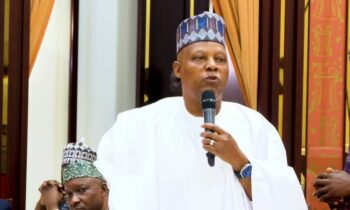….blames past leaders for lack of political will

Olusola Bello
President Muhammadu Buhari on Wednesday appointed the Minister of State for Petroleum Resources, Timipre Sylva, to head the steering committee to oversee the implementation of the new Petroleum Industry Act.
The President who presided over the weekly virtual Federal Executive Council (FEC) meeting at the State House, Abuja, however blamed past leaders for lacking political will to pass the Petroleum Industry Bill into law thereby making the country to loss about $50 billion in the last 10 years.
Other members of the steering committee, which has 12 months to complete its assignment are the Permanent Secretary, Ministry of Petroleum Resources; Group Managing Director, NNPC; Executive Chairman, FIRS; Representative of the Ministry of Justice; Representative of the Ministry of Finance, Budget and National Planning; Senior Special Assistant to the President on Natural Resources; Barrister Olufemi Lijadu as External Legal Adviser, while the Executive Secretary, Petroleum Technology Development Fund, will serve as Head of the Coordinating Secretariat and the Implementation Working Group.
The primary responsibility of the steering committee shall be to guide the effective and timely implementation of the PIA in the course of transition to the petroleum industry envisaged in the reform programme, and ensure that the new institutions created have the full capability to deliver on their mandate under the new legislation.
Though the committee has 12 months duration for the assignment, periodic updates will be given to Mr President.
The virtual meeting is physically being attended by Vice President Yemi Osinbajo, Secretary to the Government of the Federation, Boss Mustapha; National Security Adviser (NSA), Major-General Babagana Monguno (rtd) and Chief of Staff to the President, Prof Ibrahim Gambari, and some Ministers.
Meanwhile the President Muhammadu Buhari Wednesday blamed his predecessors, such as Goodluck Jonathan, Olusegun Obasanjo and Umaru Yar’Adua for the loss of an estimated $50billion worth of investments in Nigeria’s oil sectors.
The past leaders, he said, lacked political will to enact the Petroleum Industry Act(PIA), a historic feat that he has now achieved.
Buhari said the lack of action created the uncertainty in the oil sector, triggering over a decade of stagnation in the petroleum industry.
Buhari spoke today at a ceremony to kickstart the implementation of the PIA.
The ceremony preceded the Federal Executive Council (FEC) meeting.
The President said the stagnation affected the growth of the economy.
President Buhari said his assent of the Petroleum Industry Bill on August 16, 2021, marks the end of decades of uncertainty and under-investment in the petroleum industry.
“We are all aware that past Administrations have identified the need to further align the industry for global competitiveness, but there was lack of political will to actualize this needed transformation.
“This lack of progress has stagnated the growth of the industry and the prosperity of our economy. In the past ten years, Nigeria has lost an estimated US$50billion worth of investments due to uncertainty created by the non-passage of the PIB.
“This administration believes that the timely passage of the Petroleum Industry Bill will help our country attract investments across the oil and gas value chain.
“In view of the value our Nation and investors will derive from a stable fiscal framework for the oil and gas industry, our Administration has found it necessary to work with the two Chambers of the National Assembly to ensure the passage of the PIB, ’’ he said.
President Buhari noted that signing of the bill was part of the administration’s commitment to building a competitive and resilient petroleum industry that will attract investment, improve our revenue base, create jobs and support our economic diversification agenda.
The President said as a “nation that depends on oil resources for the development of other sectors, Nigeria runs a Petroleum Industry that is governed largely by laws enacted over 50 years ago such as the principal legislation; the Petroleum Act of 1969 and other obsolete legislations.’’



